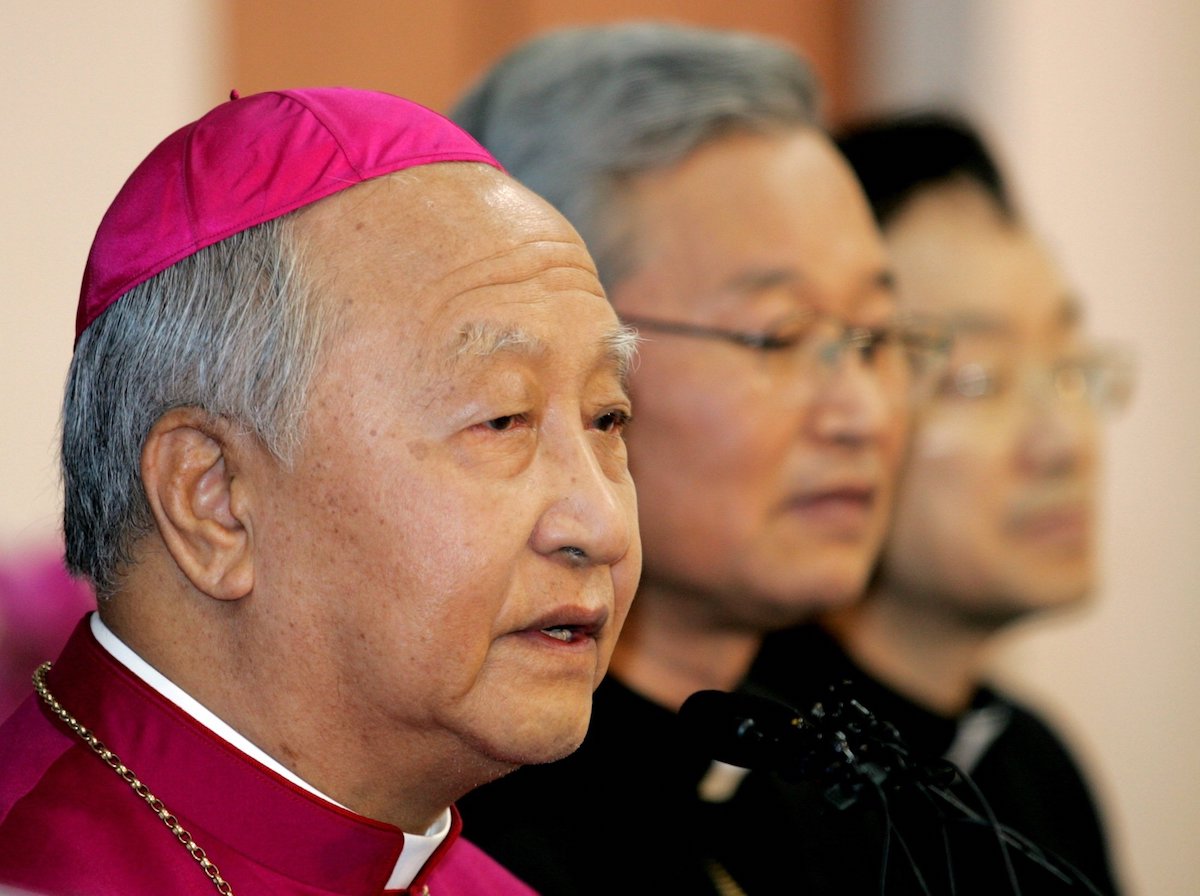VATICAN CITY (CNS) — South Korean Cardinal Nicholas Cheong Jin-suk, retired archbishop of Seoul, died April 27 at the age of 89.
During more than 40 years as a bishop, he devoted particular care to promoting respect for all human life, opposing abortion and supporting a wide variety of programs designed to work with and care for persons with disabilities, the poor and disadvantaged.
Retiring in 2012, the cardinal devoted the past nine years mainly to writing books — “58 of them,” according to the communications office of the archdiocese.
His most important work, written over the course of 15 years, was a 15-volume annotated Code of Canon Law, which included his Korean translation of the Code of Canon Law promulgated in 1983 by St. Pope John Paul II.
In 1998, St. John Paul had appointed him archbishop of Seoul and apostolic administrator of the Diocese of Pyongyang, North Korea, which has no resident priests and has not had a resident bishop since Bishop Francis Hong Yong-ho was arrested by communists in 1949 and disappeared in 1950.
In the 1920s, the North Korean diocese was staffed by members of the U.S.-based Maryknoll Missionaries. In 2007, Cardinal Cheong visited the Maryknoll headquarters in New York to dedicate a monument to the 90 Maryknoll priests, brothers and sisters who had served in the Pyongyang Diocese.
After the dedication, the cardinal told reporters he had been appointed administrator of the diocese not so much to offer pastoral care to the North Korean people now, but “to be prepared for the time when missioners can once again be sent out to the North.”
Born in Seoul Dec. 7, 1931, he was ordained to the priesthood in 1961 and held assignments at a local parish and at a Catholic high school before becoming secretary to the archbishop and chancellor of the archdiocese.
Sent to Rome to earn a degree in canon law from the Pontifical Urban University, he returned to Korea and was named bishop of Cheongju in 1970. From 1996 to 1999, he was president of the Korean Bishop’s Conference.
Pope Benedict XVI named him a cardinal in 2006.
His death leaves the College of Cardinals with 223 members; 126 of the cardinals are under the age of 80 and eligible to enter a conclave to elect a new pope.







